The Resorts at Dana Point are founding partners in the Reef Check Foundation’s Adopt-a-Reef program. Reef Check trains and supports a network of volunteer divers to monitor over 100 protected underwater parks in California – and many more internationally. (It’s a lot more complicated than that with different protection designations for different areas, but we’ll call them underwater parks for the purpose of this post. Learn more on the California Marine Protected Area website.) Businesses like Quicksilver, Body Glove and Patagonia are also Adopt-a-Reef sponsors for the Southern California region.
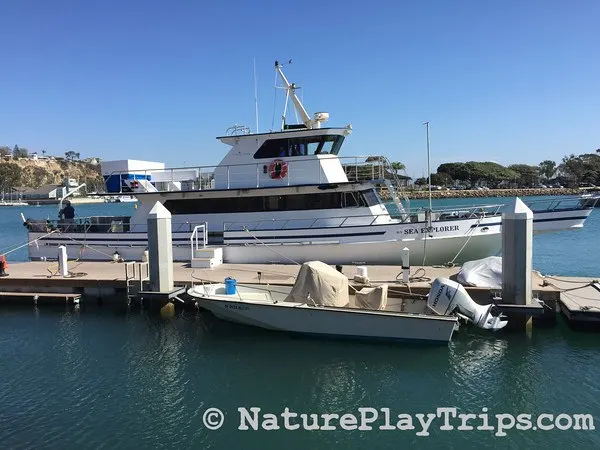
Next time you are standing at Salt Creek Beach looking out past the waves, you can tell your kids about the reef out there that’s protected in a State Marine Conservation Area which is basically an underwater park where wildlife and resources are protected. And then you can tell them how it’s only 24 feet deep out there and how on a calm day with good water visibility, you can actually look down and see the reef from a boat!
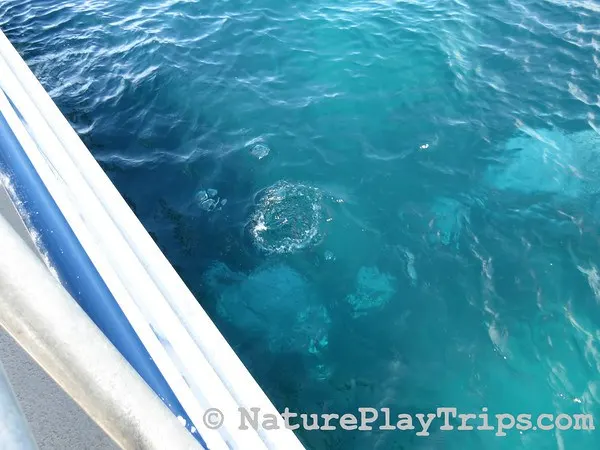
No, it’s not the coral reef you imagine when you think of Nemo, because our water is too cold to support that kind of life. In California, there are animals like the California Spiny Lobster or plants, like kelp, that need these rocky reefs to survive and thrive. In fact, there are 73 indicator species that help researchers classify the health of California reefs. The only way to know how healthy the reefs are is to dive down and collect data over time and compare. That’s where ReefCheck.org comes in.
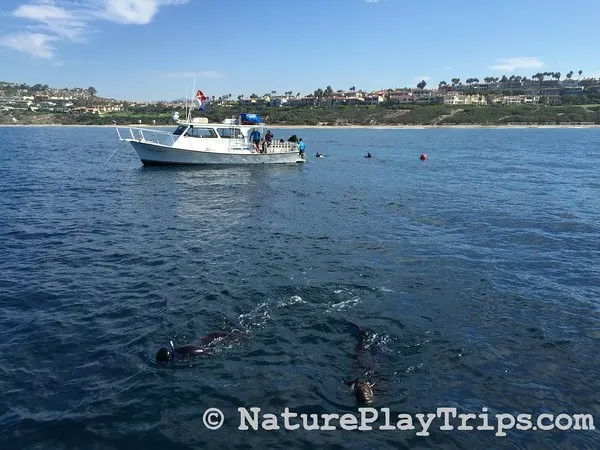
It’s not normal for the volunteer divers to have an audience, but on a sunny Saturday in October I had the honor of boarding the Ocean Institute’s R/V Sea Explorer to learn about Reef Check’s mission and data collection procedures on their last reef check of the season — along with an elementary school class of very polite and smart 5th grade scientists. Conditions were absolutely incredible and the water temperature was up to 74 degrees!
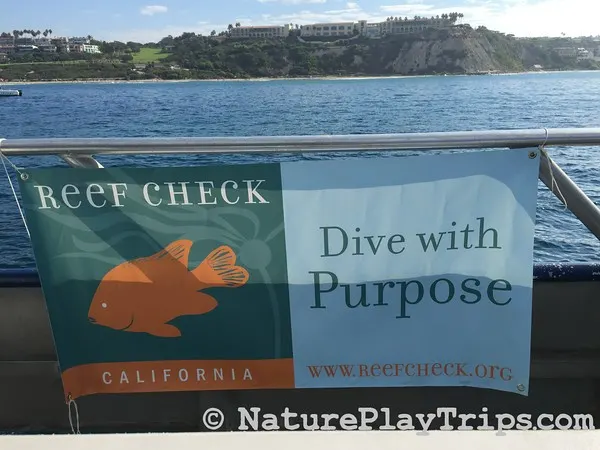
Ritz-Carlton Laguna Niguel, one of The Resorts of Dana Point, visible on the bluff above Salt Creek Beach beyond the rails of the Reef Check boat.
Ocean Institute sent down an ROV with the divers which sent back video while they were down there. The kids spotted Garibaldi, Calico Bass and even a bat ray! We got to see the divers placing their transects, filling out their waterproof data surveys, and measuring each species they identified.
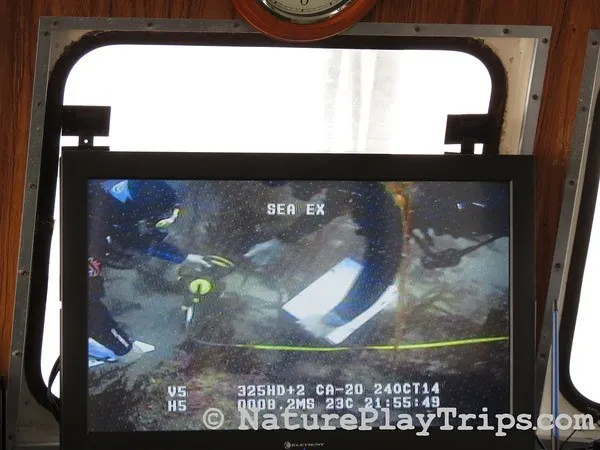
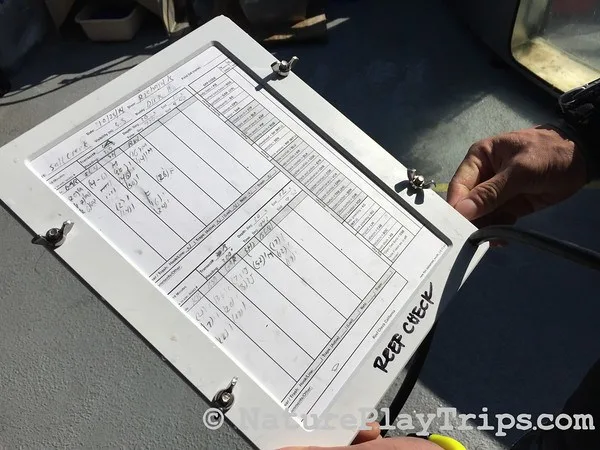
The kids loved interacting with the Reef Check divers who came aboard for a Q & A. Ocean Institute’s mission statement reads: “Using the ocean as our classroom, we inspire children to learn.” Ocean Institute volunteers and staff perfectly embodied that statement by providing the students with hands-on activity stations where they got to: write on the waterproof paper the Reef Check divers use, feel kelp, and touch lobster and sea urchin exoskeletons.
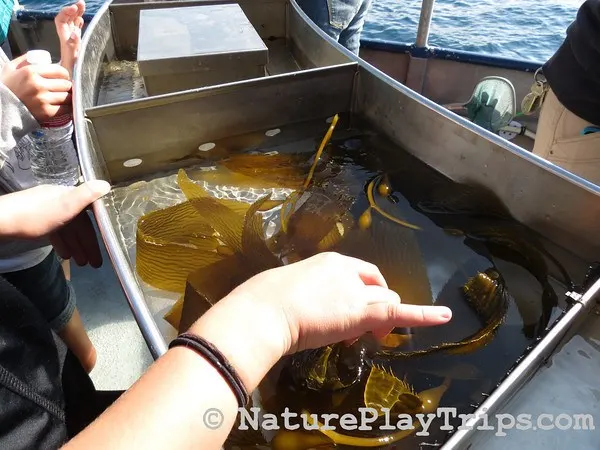
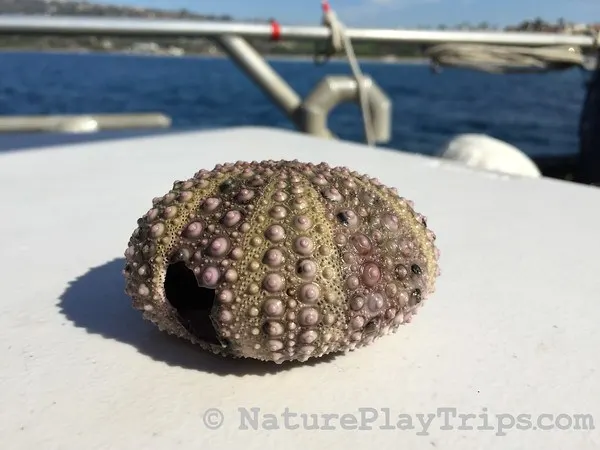
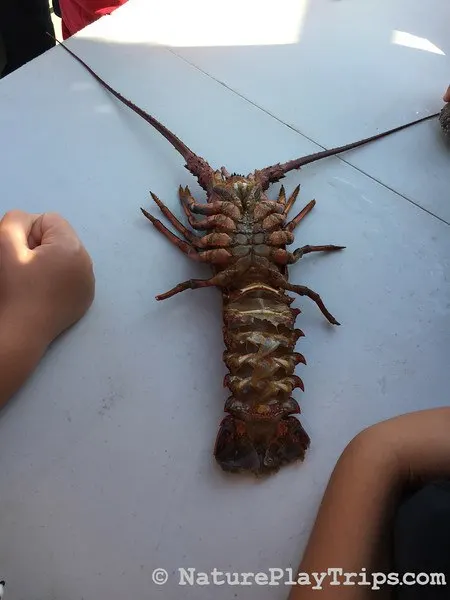
I know this looks like a dead lobster, but it’s not! It’s actually a lobster molt. When the sea creature gets too big for it’s “bones,” it sheds its entire exoskeleton and crawls into a cave to grow a new one. It’s one thing for a teacher to say it in a classroom, but another to hold one in your hand and really examine how every part of the lobster appears to be there. I loved seeing the kids hold this molt in their hands and completely zone out while trying to imagine how this could be possible.
Not ones to pass up a learning opportunity, the R/V Sea Explorer took the “long way” home so the students could see dolphins and even a humpback whale who likes to play with dolphins! Their delight illustrated that this was a once-in-a-lifetime experience for them that they’ll never forget.
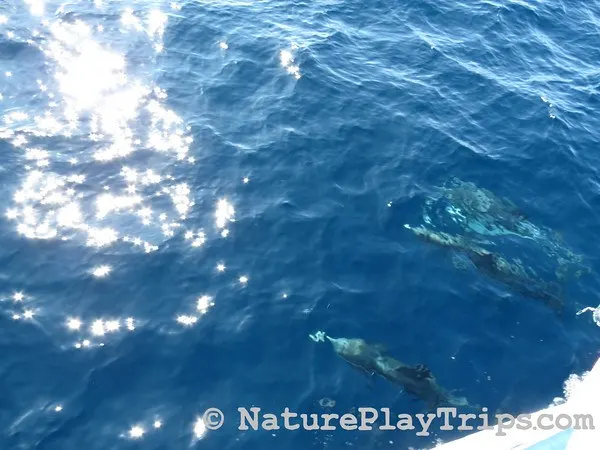
Okay, that’s the student experience. But I got a chance to talk to the volunteer divers about their experiences. The Murrays have been diving with Reef Check for 11 years – having started in the Jamaica while in the Peace Corps. Dana says that even though she works in marine science, she rarely gets a chance to “SCUBA dive as a marine biologist.” Reef Check’s intensive diver training and regular dive schedule fulfills her childhood dreams and gives her a sense of camaraderie with other Reef Check divers. Her husband, Bryan, says it makes his recreational dives better. He knows all the species he’s seeing and it makes it more enjoyable. They joked that they feel a little useless when they dive for fun, because they feel like they should be measuring or recording data.
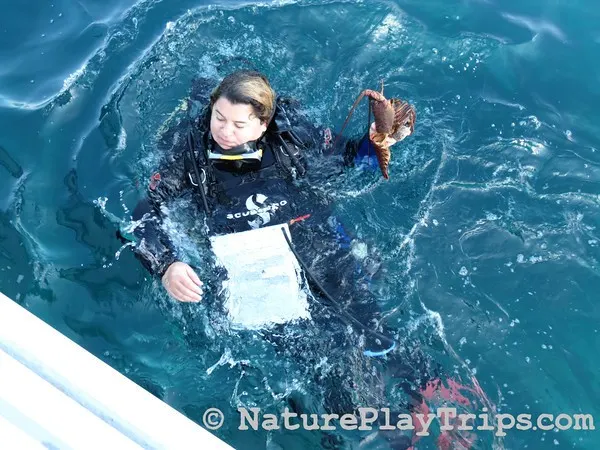
Dana in the water.
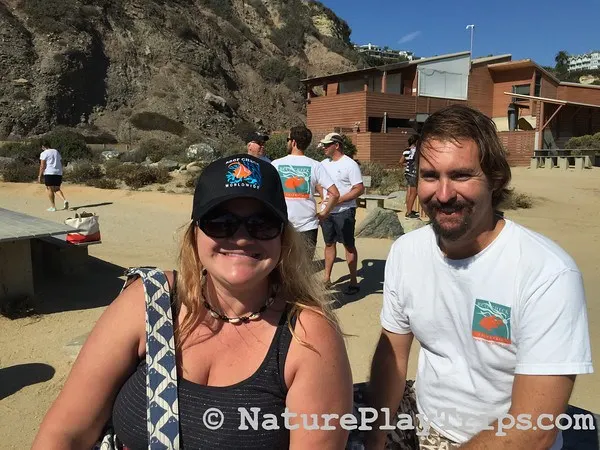
Bryan and Dana at Ocean Institute.
I always say that I like to learn one new thing – or meet one new person – every day. Well, this Reef Check day on the water was beyond amazing.
- I had the pleasure of witnessing so many “a-ha” moments for the students.
- I was impressed with the Ocean Institute staff and volunteers.
- I learned how the The Resorts of Dana Point invest in the health of the marine ecosystem and include marine life as an important member of the Dana Point community.
- I finally met Captain Mike from Ocean Institute. This is the man who is responsible for my kids summer whale sightings when they attend Ocean Institute’s awesome summer camps.
- I learned a little bit about the dedicated “family” of volunteer divers fearlessly organized by Colleen Wisniewski, Reef Check’s Southern California Regional Manager.
- And a friend even snapped a windblown pic of me with Reef Check Executive Director, Dr. Gregor Hodgson, who shared his love of the ocean with the students and sparked their curiosity by providing a glimpse of what’s below the surface.
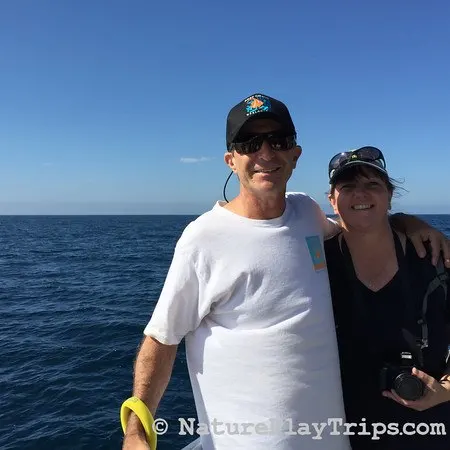
Learn more about:

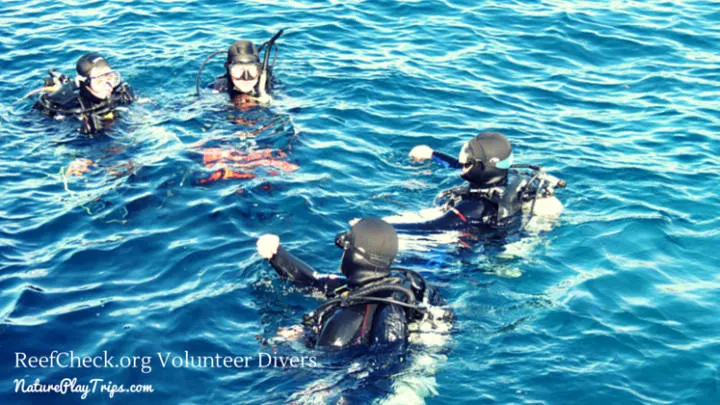
Jennifer Katayama
Friday 7th of November 2014
Do you know who I'd contact to find out more about potential field trips for my daughter's school? This sounds awesome!
Michele Whiteaker
Monday 10th of November 2014
I think it was a one time thing for these elementary school kids to get to experience this dive with Reef Check. However, Ocean Institute has LOTS of field trip opportunities that would be similar: http://www.ocean-institute.org/teacher/index.html